#Substack content strategy
Explore tagged Tumblr posts
Text
Substack Mastery Book: Chapter 15
Why and How to Integrate Substack with Patreon for Compelling Reasons Based on Experience and Observations of Bestselling Freelance Writers and High Earning Content Entrepreneurs I have a deep appreciation for Substack, which is why I wrote this Substack Mastery book. But before discovering Substack, I had already been using Patreon for quite some time, finding it incredibly versatile for…
#business#Content marketing for creators#grow your audience on Substack#Integrating Substack and Patreon#Monetize your writing on Substack and Patreon#Patreon#Patreon for content creators#Patreon for writers#Self Improvement#stories#substack#Substack content strategy#Substack monetization tips#Substack newsletter growth#Substack vs Patreon#technology#writers#writing#writingcommunity
0 notes
Text
Web 3.0 vs Web 2.0: A Writing Revolution
How Web 3.0 is Rewriting the Rules of Writing, Ownership, and Monetization Forever The Broken Promise of Web 2.0 For decades, writers have been trapped in a system that rewards platforms over creators. The Web 2.0 era turned content into a commodity—owned by corporations, monetized through ads, and dependent on algorithms. Writers became cogs in a machine, trading their time and talent for…
#ai#AI and Writing#AI-Powered Writing#blockchain#Blockchain Publishing#Content Monetization Strategies#Creative Economy#crypto#Crypto Writing Tools#DAOs for Writers#Decentralization#Decentralized Content#Decentralized Publishing#Digital Sovereignty#DigitalOwnership#Earning from Writing in Web3#future of work#FutureOfWork#Gumroad Digital Products#Ko-fi for Writers#Metaverse#NFT Books#Quantum Writing#Substack Crypto#technology#The New Creator Economy#Tokenized Creativity#Web 11:11#Web 3.0 Writing#Web 3.0 Writing Blockchain Publishing NFT Books Decentralized Content AI and Writing Tokenized Creativity Digital Sovereignty Web3 Monetizat
0 notes
Text
The Washington Post is working on plans to get content from alternative sources like Substack contributors and “nonprofessional writers” aided by an AI editor and writing coach, reported The New York Times’ media reporter Ben Mullin.
The new content strategy comes after months of turmoil at the Post as staffers have bristled at efforts by owner Jeff Bezos and publisher and CEO Will Lewis to cut costs, increase revenue, and adopt a more right-leaning, MAGA-friendly tone, including directing the paper to forgo an endorsement of Vice President Kamala Harris last fall and a February staff-wide email from Bezos announcing a “new direction” for the Opinion Section.
According to Mullin’s report Tuesday afternoon, the program has been internally named “Ripple” and the research and development for it started over a year ago. It seeks to “sharply expand” the Post’s lineup of columnists in an effort to “appeal to readers who want more breadth than The Post’s current opinion section and more quality than social platforms like Reddit and X.”
64 notes
·
View notes
Text
youtube
Tired of chasing passive income that never pays off? In 2025, creators are stacking multiple income streams using tools that actually work. From FeetFinder and Substack newsletters to Etsy digital products, affiliate blogs, and smart AI tools for creators — this video breaks down how to build a sustainable income strategy that doesn't rely on going viral. Learn how to boost your content monetization, leverage TikTok marketing, and simplify content automation using a proven creator tech stack. Whether you’re exploring affiliate marketing, creating digital content, or just want a real FeetFinder review, this is your full guide to making money online smarter in 2025.
#Passive income#Sustainable income#Make money online#Multiple Income Streams#Content Monetization#Digital Content#Affiliate Marketing#Youtube
31 notes
·
View notes
Text
Silicon Valley's Parasite Culture
From Ted Gioia's substack -- and I do realize the irony of reposting a substack post about parasitical behavior as content on my Tumblr yes -- that said, I really want people to read this
...For the first time in history, the Forbes list of billionaires is filled with individuals who got rich via parasitical business strategies—creating almost nothing, but gorging themselves on the creativity of others. That’s how you get to the top in the digital age. Instead of US Steel, it’s Us steal. Instead of IBM, it’s IB Robbing U. But when parasites get too strong, they risk killing their hosts.
Recall that only ten percent of animal species are parasites. What happens if that number grows to 30% or 50% or 70%? That must have catastrophic consequences, no? This is precisely the situation in the digital culture right now. Google’s success in leeching off newspapers puts newspapers out of business. Musicians earn less and less, even as Spotify makes more and more. Hollywood is collapsing because it can’t compete with free video made by content providers. It’s no coincidence that these parasite platforms are the same companies investing heavily in AI. They must do this because even they understand that they are killing their hosts. When the host dies, AI-generated content can replace human creativity. Or—to be blunt about it—the host will die because of AI-generated content. And then the web billionaires won’t even need to toss those few shekels at artists. It’s every parasite’s dream. The host can die, but the leech still lives on! But there’s one catch. Training AI requires the largest parasitical theft of intellectual property in history. Everything now gets seized and sucked dry. No pirate in history has pilfered with such ambition and audacity.
now, I think we are finding that there are diminishing returns on the AI training at this point (in this gen of the technology at least) such that they are not able to replace human creativity. But if they could, they would, is the point. And when we talk about AI we need to address the parasitical business models that make it an inevitability.
55 notes
·
View notes
Text
Olga Lautman:
Trump’s Crackdown: Silencing Dissent and Censoring the Press
While Trump floods the zone with chaos, I am watching a deeply disturbing pattern emerge. Recently, he has targeted universities under the guise of combating antisemitism, threatening to cut funding, open investigations, and deport foreign students involved in what he deems "illegal protests." This move to silence student voices is part of a broader strategy—Trump is systematically laying the groundwork to criminalize dissent. Concurrently, he has continued to invoke emergency powers over immigration, granting himself sweeping authority with minimal oversight. Adding to this concerning trend, Trump is weaponizing the Federal Communications Commission to suppress media freedom. Under his regime, the FCC has initiated investigations into major news organizations like NPR and PBS, scrutinizing their content and funding. The White House has also barred Associated Press reporters from covering presidential events, citing disagreements over “terminology.” Furthermore, the regime has taken control of the White House press pool, deciding which journalists can cover presidential activities, effectively beginning the process of sidelining independent media voices. Today, the targets are "antisemitism" and "immigration." Tomorrow, it could be any form of resistance to the regime. This pattern mirrors tactics employed by autocratic governments, where laws and regulations are manipulated to suppress opposition and control public discourse. It is imperative to recognize and challenge these encroachments on our democratic freedoms before dissent becomes a criminal act, and that is why I felt it was important to bring it to everyone’s attention.
The Playbook of Repression
Trump’s attacks on universities have nothing to do with stopping antisemitism. If they did, there would be a serious, balanced approach to addressing hate across the board. Instead, he’s selectively using it as a pretext to punish colleges, strip funding, launch investigations, and lay the groundwork for broader crackdowns on protests. These moves, along with the threat to deport foreign students who participate in protests, are a classic authoritarian tactic—silencing youth movements before they become a real threat. In Russia, we have seen this exact strategy play out. Putin started by using the language of “public order” to justify suppressing protests. Then, he expanded it to clamp down on journalists, opposition figures, and universities. Today, any form of public dissent in Russia is met with immediate arrests, long prison sentences, or exile. Trump is following the same playbook. First, redefine what qualifies as a legal protest. Then, frame all opposition as a national security threat. Finally, implement policies that criminalize resistance. Let’s not forget—during his first term, Trump wanted the military to shoot protesters, but guardrails stopped him. Now, with those guardrails gone and loyalists installed in key positions, he is laying the groundwork to justify an all-out assault on free speech and assembly, using the rhetoric of “law and order” to disguise repression as a “necessary” security measure.
The Danger of Emergency Powers
Trump’s continuing invocation of emergency powers on immigration is another red flag. Emergency powers are not inherently undemocratic, but in the wrong hands, they are a tool for consolidating unchecked authority. In Russia, Putin used emergencies—terrorist attacks, economic crises, and foreign threats—to justify expanding his power. Each crisis became an excuse to centralize control and dismantle any resistance to the regime.
Olga Lautman has a solid Substack column on Tyrant 47’s war on dissent and free speech.
#Freedom of Speech#1A#1st Amendment#Donald Trump#Freedom Of The Press#War On The Press#Authoritarianism#Olga Lautman
20 notes
·
View notes
Text
This Was Supposed to Be Fun
Or: WTF happened to the online Commons, and where do we go now?
Let me start by saying that I don't want to be a "content creator" or “online influencer”. I don't want to "optimize engagement" or “build an agile social strategy”. I don’t even particularly want to Start a Blog or Podcast. I just want to f#¢&!ng hang out with my friends and community online, and I feel like we should have The Technology to just do that by now.
Of course (infuriatingly) we did have that technology! I first connected to the World Wide Web in 2001 when I was ten years old. Back then, the whole family shared one computer, which I mostly used to play Age of Empires, Bugdom, and Oregon Trail. Connecting to the Internet meant that nobody could use the phone, so we would log on quickly (accompanied by a symphony of discordant whistles and beeps), check emails and/or MSN messages, and then pass the computer to the next person.
As our access to the Internet grew through my teens, so did the diversity of content we consumed, shared, and bonded over. eBaum’s World and Newgrounds hosted a plethora of simple, free webgames we'd play once we got bored with the handful my parents were willing to buy, as well as the first viral videos like Numa Numa and Star Wars Kid. We also connected in new ways with a growing “social web” — profiles on sites like Myspace and Livejournal and eventually the early Facebook were a way that anyone could have their own site on the web, a little virtual locker that you could decorate and fill up to your liking, and have your friends stuff with virtual notes.
In my late teens and early twenties, the Internet was mostly for research and keeping up with student government and clubs via long weekly emails stuffed with hyperlinks and attachments. It wasn't until I was well into my twenties that I got my first smartphone. At university, the only way to connect to the Internet “on the go” was to tweet my on-the-go thoughts by sending an SMS text message to Twitter at 21212. I also hardly used the social web anyways, other than for a quick dopamine distraction or break from long study sessions in the library. I had even deleted my Facebook account that I'd had since high school, since the campus coffee shop and bar served as more than enough of a hub for socializing, philosophical and political debates, and important announcements posted on cork boards or delivered by intercom.
I know I probably sound like a stereotypical Millennial, whining about the “good ole days”, but I wanted to spend this time on memory lane for a reason. I think that no matter when you grew up, this feeling is probably close to universal: from the early 2000s to early 2020s, the Internet and social web seemed to just work. There were a lot of things wrong with the world, but the Internet was where we went to complain about other problems, not a source of them. But of course, even back then we were living on borrowed money and time. The virtual Commons we had grown comfortable in never actually belonged to us, the users. From the moment they incorporated, the big sites belonged to venture capital, who sold them out to the oligarchs, who sold them out to the fascists. We were never the customer, always the product.
Flash forward to 2025. The “big four” North American social media outlets (Facebook, Instagram, Twitter, and TikTok) have all been captured by the Trump administration. Smaller sites, like Reddit, Telegram, and Substack have long been a hotbed for bigotry and hate speech. Searches on Apple, Google, Microsoft, and even Pinterest are serving up LLM “AI” slop before authentic and unique human creations. Ads, suggestions, sponsored posts, and cookie pop-ups take up far more space than the content I came for. And if I ever want my family, friends, and community to actually see my updates, I either need to send them to each person directly, or market my posts not to them, but to an algorithm optimized not for users or even businesses, but shareholder profit. On top of all of this, there is a pervasive sense of how uncomfortably public, permanent, and surveilled it all is. (In parallel to all this: efforts to gather in person are cut at the knees by a lack of coherent and safe public health policies, the dismantling of Third Spaces and affordable public transportation, and the militarization of the police.)
It is horrifying that exactly when the biggest thing we need for survival is to build and strengthen community, that the only accessible tools to do so, are hostile to our very existence.
Obviously this isn’t a coincidence. Every time we, the people, can talk to each other directly, we start getting dangerous ideas about the fact that the ultra-wealthy and hyper-elite are so few, and the rest of us are so many. Pamphlets facilitated the French and American revolutions, the telegraph and radio hastened the collapse of the Russian and German Empires, and Twitter fanned the flames of the Arab Spring. And here in America, The Powers That Be, Red and Blue alike, overwhelmingly want the American government in strict control over where and how we can communicate with each other.
And here I am, just hoping for a single F#¢&!NG site on the whole World Wide Web where I can just hang out with family, friends, and community that isn't owned and operated by literal fascists, kept behind a paywall, or too technical for our Elders to use. A comfy virtual coffee shop with announcement boards, conversations, the occasional performance, and a locker nearby for collecting memories and passing notes.
I don’t really know what the Takeaway/Call to Action is here. Yes, I’m already on Tumblr, Mastadon, and Bluesky, and would love it if we all continued to grow these kind of alternatives while divesting from profit-driven social "platforms". I’m still on Discord, Snapchat, and Signal and even have accounts on Loops, Pixelfed, and Xiaohongshu, in case the center of gravity ever moves over to those places. All of them still feel very "under construction" though, so I don't even know which (if any) I feel comfortable asking friends and family to "switch over" to. In the meantime, I'm just feeling lost, sad, lonely, and adrift; and wanted to share these musings with y’all. Just in case anyone has any advice you want to share, or are feeling the same way and want to commiserate.
xposted to Facebook, Tumblr, Medium, and WriteAs. God, I hate the Internet right now >:(
#internet#enshittification#fediverse#3rd spaces#paywalls#algorithm#fyp#tumblr fyp#millenial bitching#ugh
19 notes
·
View notes
Text
🌀 THE $10K/MONTH BLUEPRINT 🌀
🌀 THE $10K/MONTH BLUEPRINT 🌀 aka how to escape the rat race and live life on your own terms.
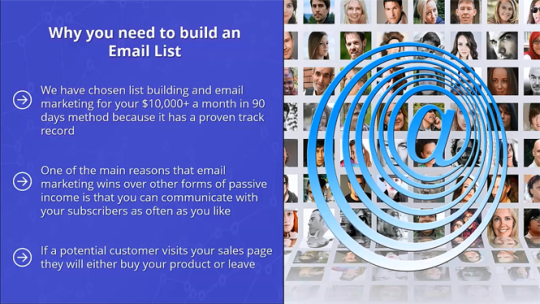
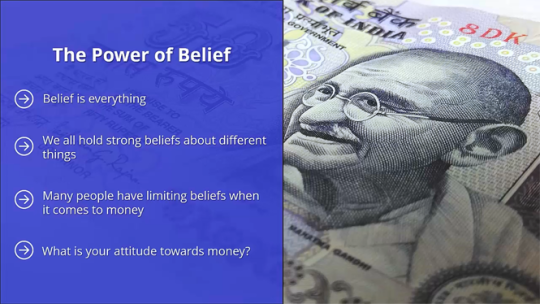
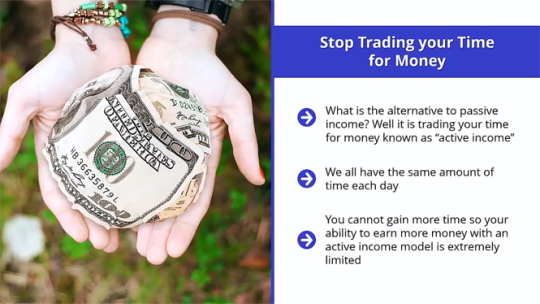
☁️ this post is for the dreamers, the builders, the ones done waiting for permission. let’s break it down:
💡 STEP 1: Pick Your Path You need a monetizable skill or offer. Choose one: → Freelancing (writing, design, coding, video editing) → Product-based (digital downloads, Etsy, print-on-demand) → Coaching/consulting (fitness, mindset, biz strategy) → Content creation (YouTube, TikTok, Substack, Patreon) → SMMA or UGC (brands will pay you to create)
Pick ONE. Focus is the new rich.
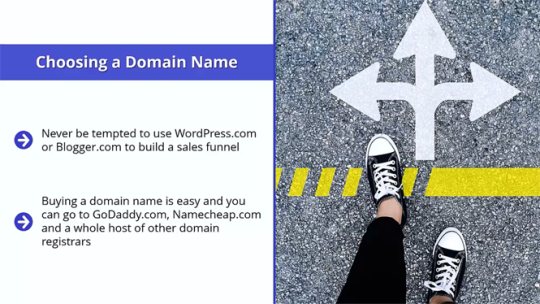
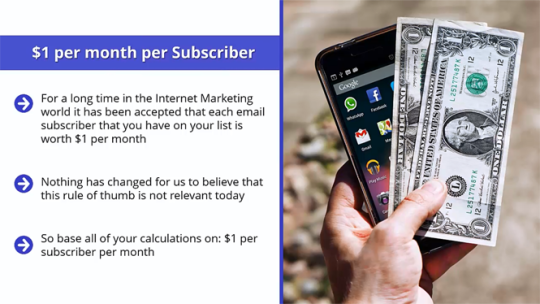
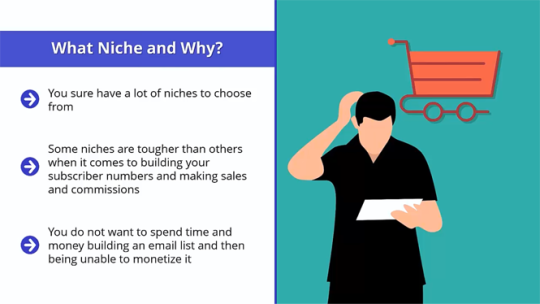
Click HERE to get access
🧰 STEP 2: Build Your Offer Create something people want—not just what you like. Ask: → What problem do I solve? → Why would someone pay me for this? → Can I prove results or build a case study?
Packaging = Power. Make your offer irresistible.
📣 STEP 3: Get Loud Start posting. Start emailing. Start DMing. No one pays you if no one knows you. → Show your face → Share your process → Give free value → Position yourself as an authority
Lurk less, build more.
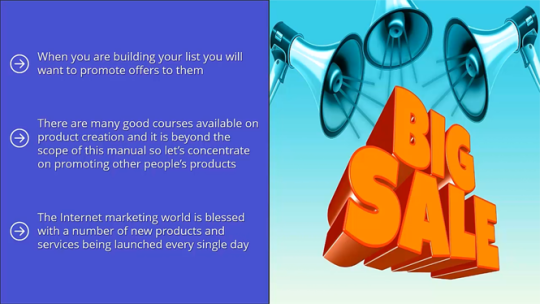

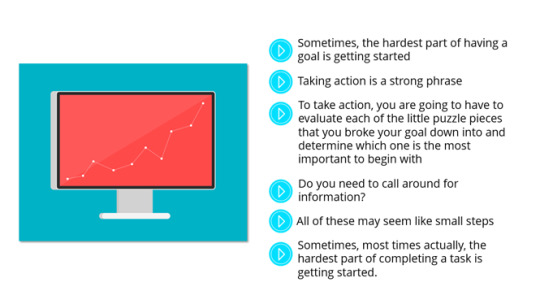
Click HERE to get access https://payhip.com/b/ZBdSH
💸 STEP 4: Scale to $10K Here’s a sample math: → $1K offer × 10 clients = $10K → $500 offer × 20 clients = $10K → $100 digital product × 100 sales = $10K → $2,500/month retainer × 4 clients = $10K
Keep your offer → dial in your outreach → systemize your delivery.
🧠 MINDSET MATTERS → You don’t need to be an expert. Just be a few steps ahead. → Charge for the value, not the hours. → People buy confidence. Believe in your offer first. → You will fail at first. That’s the point. Don’t quit.
🌱 Start small. Think big. Stay consistent. Your $10K month won’t happen overnight. But it will happen if you keep showing up.

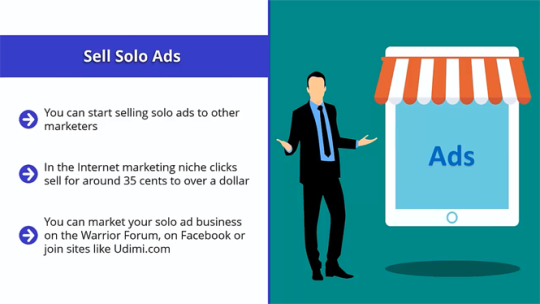
Click HERE to get access https://payhip.com/b/ZBdSH
Tag someone who needs to see this 🤍
#10kblueprint #hustleculture #entrepreneurlife #digitalnomad #onlinebusiness #moneytips #manifestmoney
2 notes
·
View notes
Text
When I started my business, I thought passion and hard work were enough. I quickly learned that without the right digital marketing strategy, I was nearly invisible online.
After months of trial and error, I discovered Crux Creations — a digital marketing agency that finally made things click. They helped me with:
Search engine optimization (SEO)
Content strategy that actually gets seen
Social media planning that saves time
I shared my full journey in my latest Substack blog. If you’re a small business owner or creative entrepreneur struggling to stand out online, this one’s for you.
🔗 Read it here: What I Wish I Knew Before Trying to Market My Business Online
💬 Let me know if you relate, and feel free to reblog or share with someone who might need it!
2 notes
·
View notes
Text
I Hate Seeing Writers Not Making MoneySo Here Are 8 Ways to Make More as a Writer
Here’s the truth: great writing alone doesn’t guarantee great income.
I’ve seen too many talented writers underpaid, undervalued, or stuck in passion projects that don’t pay the bills. And it frustrates me — because writing is a skill that’s in demand everywhere. You just need to know how to position it, sell it, and scale it.

If you're ready to stop writing for exposure and start earning what you're worth, here are 8 practical, proven ways to make more money as a writer.
Freelance for High-Paying Clients (Not Content Mills)
You don’t need to accept \$20 blog posts when there are companies and entrepreneurs willing to pay \$300–\$1,000+ per article. The secret is targeting niches that need content to drive business, like:
SaaS and tech
Personal finance
Healthcare
B2B services
Pitch directly, build a niche portfolio, and learn how to charge by value, not word count.
✅ Pro Tip: Start by rewriting your services to focus on outcomes — like “I help SaaS brands attract customers with SEO content” vs. “I write blog posts.”
Offer Ghostwriting Services
Ghostwriting is one of the highest-paying forms of writing — and most clients don’t care about you getting credit; they care about results. You can ghostwrite:
LinkedIn thought leadership
Executive blogs
Nonfiction books
Email newsletters
It’s creative, lucrative, and repeatable.
✅ Rates: Ghostwritten LinkedIn posts can earn \$200–\$500/post. Books? Thousands.
Sell Digital Products
Turn your knowledge into scalable income with digital products like:
Ebooks
Notion templates
Writing guides
Pitching scripts
Once created, they can sell indefinitely with no ongoing labor. Perfect for writers with an audience or niche expertise.
✅ Tools: Use Gumroad, Payhip, or Podia to start selling fast.
Start a Paid Newsletter
If you love writing essays, storytelling, or niche commentary, why not monetize it with a paid newsletter? Services like Substack or Beehiiv let you build free + paid tiers.
You don’t need 10,000 subscribers — just 100 people paying \$5/month = \$6,000/year in recurring income.
✅ Best Niches: Personal finance, creator economy, niche analysis, industry trends.
Teach What You Know (Courses & Workshops)
Writers often forget — the way you write, think, and communicate is a teachable skill.
Package it into:
Online courses (e.g., “How to Write Better Cold Emails”)
Cohort-based workshops
Private coaching for new writers or business owners
✅ Platforms: Teachable, Circle, Maven, or even Zoom + Stripe to start.
Monetize with Affiliate Writing
If you write product-based content or reviews, affiliate marketing is a great passive income stream. You write once, and earn commissions every time someone buys through your link.
Best niches: Software, writing tools, education products, lifestyle gear.
✅ Pro Tip: Focus on high-ticket or recurring commissions (like SaaS tools).
License Your Writing
You can earn money by licensing your existing content to brands, newsletters, or websites. If you’ve written a high-performing article, offer a non-exclusive license to republish it for a fee.
Also consider:
Licensing quotes or content to marketers
Offering a “writing bundle” to creators or agencies
✅ This works well for evergreen, data-driven, or inspirational content.
Write for Yourself — Then Monetize It
Blogging, storytelling, or journaling can become income if you build a brand around it. Writers like Morgan Housel and Anne-Laure Le Cunff built huge audiences through consistent, personal writing — then monetized with books, speaking, courses, and sponsorships.
✅ Just start: Build your platform. Even 1,000 loyal readers can turn into six figures over time.
Final Thoughts
Writing is not a dead-end job. It's a high-leverage skill that can create freedom, income, and impact — if you treat it like a business.
If you’re a talented writer struggling to make money, it’s not a lack of skill. It’s usually a lack of strategy.
Pick one or two methods from this list. Go deep. Get paid.
And never again write “just for exposure.”
2 notes
·
View notes
Text
50 Essential To-Do List Items for Writers to Earn Online in 2025

Discover the 50 actionable tasks every freelance writer should include in their to-do list to maximize online income. From setting up profiles to mastering SEO, get started today!
Whether you are a seasoned wordsmith or just starting out, earning online as a writer requires more than just a knack for language. You need a clear roadmap—a to-do list that guides you through building your brand, honing your skills, finding clients, and optimizing your online presence. In this article, we will break down 50 essential tasks that will help you launch and grow a sustainable online writing career in 2025.
1. Set Your Foundations
Define Your Niche
Establish Your Writing Goals
Outline Your Unique Value Proposition
Create a Professional Email Address
Purchase a Domain Name
2. Build Your Online Portfolio
Set Up a Personal Website or Blog
Showcase 3–5 High-Quality Writing Samples
Write an “About Me” Page with Keywords
Add a Clear Call-to-Action (CTA)
Include Testimonials or Case Studies
3. Optimize for SEO
Research High-Value Keywords
Implement On-Page SEO Best Practices
Write SEO-Friendly Headlines (H1/H2/H3)
Use Internal and External Links Strategically
Ensure Fast Page Load Times
4. Establish Your Presence on Freelancer Platforms
Create Profiles on Upwork, Fiverr, and Freelancer
Write Compelling Profile Summaries with Keywords
Set Competitive—but Sustainable—Rates
Apply to 5 Relevant Gigs per Week
Solicit Initial Reviews from Small Jobs
5. Leverage Content Marketplaces & Agencies
Join Contena, Scripted, or Clear Voice
Submit Proposals to 3–5 Agencies
Complete Platform Skill Tests
Network with Other Writers in Private Groups
Track Applications in a Spreadsheet
6. Grow Your Network
Engage in Writing Communities on LinkedIn
Participate in Twitter Chats (e.g., #WritingCommunity)
Attend Virtual and Local Writing Workshops
Collaborate on Guest Posts
Ask for Referrals from Past Clients
7. Develop Your Skills
Enroll in an SEO Writing Course
Practice Copywriting Techniques Weekly
Learn Basic HTML/CSS for Formatting
Study Content Marketing Strategies
Read 1–2 Industry Blogs Every Day
8. Diversify Your Income Streams
Write and Self-publish an eBook
Create a Paid Newsletter (e.g., Substack)
Offer Editing and Proofreading Services
Run Paid Writing Workshops or Webinars
Develop a Patreon or Membership Tier
9. Market Yourself Effectively
Build an Email List & Send Weekly Updates
Optimize Social Media Profiles
Share 2–3 Samples of Your Work Per Month
Use Tailored Pitches for Prospective Clients
Invest in Targeted Ads (LinkedIn/Facebook)
10. Stay Organized & Maintain Growth
Use a Project Management Tool (Trello/Asana)
Set Weekly and Monthly Income Targets
Review Analytics (Website & Social)
Schedule Time for Rest and Skill Building
Periodically Update Your Portfolio & Rates
Building a successful online writing career is a marathon, not a sprint. By systematically working through these 50 to-do list items, you will create a robust foundation for attracting clients, boosting your visibility, and maximizing your earnings in 2025. Bookmark this article, check off tasks as you go, and revisit it regularly to stay on track—your freelance writing empire starts today!
Ready to act? Start with item #1: define your niche—and watch your online writing income grow!
2 notes
·
View notes
Text
What Makes This Advanced Book for Freelance Writers Exceptional?
Editorial Review of A Powerful Toolkit for Advanced Substack Newsletter Mastery Written by content strategist, leading author, and community builder Dr Mehmet Yildiz, A Powerful Toolkit for Advanced Substack Newsletter Mastery is not just another addition to the sea of freelance writing guides. It’s a symbol of clarity, care, and insights tailored for those ready to elevate their writing craft…
#Advanced Substack strategies#Build a community on Substack#Content creation strategies for writers#Dr. Mehmet Yildiz book review#Grow your Substack audience#Substack newsletter mastery#Substack Writing Tips#Successful freelance writing on Substack#Sustainable writing business#Writing tools for Substack creators
1 note
·
View note
Text
RECENT SEO & MARKETING NEWS FOR ECOMMERCE, AUGUST 2024

Hello, and welcome to my very last Marketing News update here on Tumblr.
After today, these reports will now be found at least twice a week on my Patreon, available to all paid members. See more about this change here on my website blog: https://www.cindylouwho2.com/blog/2024/8/12/a-new-way-to-get-ecommerce-news-and-help-welcome-to-my-patreon-page
Don't worry! I will still be posting some short pieces here on Tumblr (as well as some free pieces on my Patreon, plus longer posts on my website blog). However, the news updates and some other posts will be moving to Patreon permanently.
Please follow me there! https://www.patreon.com/CindyLouWho2
TOP NEWS & ARTICLES
A US court ruled that Google is a monopoly, and has broken antitrust laws. This decision will be appealed, but in the meantime, could affect similar cases against large tech giants.
Did you violate a Facebook policy? Meta is now offering a “training course” in lieu of having the page’s reach limited for Professional Mode users.
Google Ads shown in Canada will have a 2.5% surcharge applied as of October 1, due to new Canadian tax laws.
SEO: GOOGLE & OTHER SEARCH ENGINES
Search Engine Roundtable’s Google report for July is out; we’re still waiting for the next core update.
SOCIAL MEDIA - All Aspects, By Site
Facebook (includes relevant general news from Meta)
Meta’s latest legal development: a $1.4 billion settlement with Texas over facial recognition and privacy.
Instagram
Instagram is highlighting “Views” in its metrics in an attempt to get creators to focus on reach instead of follower numbers.
Pinterest
Pinterest is testing outside ads on the site. The ad auction system would include revenue sharing.
Reddit
Reddit confirmed that anyone who wants to use Reddit posts for AI training and other data collection will need to pay for them, just as Google and OpenAI did.
Second quarter 2024 was great for Reddit, with revenue growth of 54%. Like almost every other platform, they are planning on using AI in their search results, perhaps to summarize content.
Threads
Threads now claims over 200 million active users.
TikTok
TikTok is now adding group chats, which can include up to 32 people.
TikTok is being sued by the US Federal Trade Commission, for allowing children under 13 to sign up and have their data harvested.
Twitter
Twitter seems to be working on the payments option Musk promised last year. Tweets by users in the EU will at least temporarily be pulled from the AI-training for “Grok”, in line with EU law.
CONTENT MARKETING (includes blogging, emails, and strategies)
Email software Mad Mimi is shutting down as of August 30. Owner GoDaddy is hoping to move users to its GoDaddy Digital Marketing setup.
Content ideas for September include National Dog Week.
You can now post on Substack without having an actual newsletter, as the platform tries to become more like a social media site.
As of November, Patreon memberships started in the iOS app will be subject to a 30% surcharge from Apple. Patreon is giving creators the ability to add that charge to the member's bill, or pay it themselves.
ONLINE ADVERTISING (EXCEPT INDIVIDUAL SOCIAL MEDIA AND ECOMMERCE SITES)
Google worked with Meta to break the search engine’s rules on advertising to children through a loophole that showed ads for Instagram to YouTube viewers in the 13-17 year old demographic. Google says they have stopped the campaign, and that “We prohibit ads being personalized to people under-18, period”.
Google’s Performance Max ads now have new tools, including some with AI.
Microsoft’s search and news advertising revenue was up 19% in the second quarter, a very good result for them.
One of the interesting tidbits from the recent Google antitrust decision is that Amazon sells more advertising than either Google or Meta’s slice of retail ads.
BUSINESS & CONSUMER TRENDS, STATS & REPORTS; SOCIOLOGY & PSYCHOLOGY, CUSTOMER SERVICE
More than half of Gen Z claim to have bought items while spending time on social media in the past half year, higher than other generations.
Shopify’s president claimed that Christmas shopping started in July on their millions of sites, with holiday decor and ornament sales doubling, and advent calendar sales going up a whopping 4,463%.
9 notes
·
View notes
Text
Ads containing abortion-related misinformation are allowed to run on Facebook and Instagram in countries across Asia, Africa, and Latin America, while legitimate health care providers struggle to get theirs approved, new research has found.
The report, released today from the Center for Countering Digital Hate and MSI Reproductive Choices, an international reproductive health care provider, collected instances from across Vietnam, Nepal, Ghana, Mexico, Kenya, and Nigeria. Between 2019 and 2024 in Ghana and Mexico alone, researchers found 187 antiabortion ads on Meta’s platforms that were viewed up to 8.8 million times.
Many of these ads were placed by foreign antiabortion groups. Americans United for Life, a US-based nonprofit whose website claims that abortion pills are “unsafe and unjust,” and Tree of Life Ministries, an evangelical church now headquartered in Israel, were both linked to the ads. Researchers also found that ads placed by groups not “originating in the country where the ad was served were viewed up to 4.2 million times.”
In the report, researchers found that some of the ads linked out to websites like Americans United for Life, whose website describes abortion as a “business” that is “unsafe” for women. The abortion pill is widely considered safe and is less likely to cause death than both penicillin and Viagra. Other ads, like one run by the Mexican group Context.co, linked to a Substack dedicated to the topic that implied there is a secret global strategy to manipulate the Mexican populace and impose abortion on the country.
One ad identified in Mexico alleged that abortion services were “financed from abroad … to eliminate the Mexican population.” Another warned that women could suffer “severe complications” from using the abortion pill.
Meta spokesperson Ryan Daniels told WIRED that the company allows “posts and ads promoting health care services, as well as discussion and debate around them,” but that content about reproductive health “must follow our rules,” including only allowing reproductive health advertisements to target people above the age of 18.
“This is money that Meta is taking to spread lies, conspiracy theories, and disinformation,” says Imran Khan, CEO of the Center for Countering Digital Hate.
In these countries, where Meta often has partnerships with local telecom companies that allow users to access its platforms for free, Facebook is a key source of information. Some of these ads also ran on Instagram. “Anybody with a cell phone can access information. People use it to find services. When we ask clients, how did you hear about us? a lot of them will cite Facebook, because they live on Facebook. It's where they know to search for information,” says Whitney Chinogwenya, marketing manager at MSI Reproductive Choices. So when disinformation runs rampant on the platform, the impact can be widespread.
“Good health information saves lives. By actively aiding the spread of disinformation and suppressing good information,” Khan says, “[Meta is] literally putting lives at risk in those countries and showing that they treat foreign lives as substantially less important to them than American lives.”
Many of the countries impacted by this report also have high maternal mortality rates, making access to reproductive services particularly crucial. In Nepal, for instance, there are 239 maternal deaths per 100,000 live births, as opposed to only 32 in the United States. In Ghana, it’s even higher: 319 deaths per 100,000 live births. This comes as the US continues to grapple with the implications of the 2022 Supreme Court decision that struck down Roe v. Wade. On Tuesday, the US Supreme Court heard oral arguments on a milestone abortion case that will determine access to the abortion pill across the country. These laws and policies in the US are often fodder for those seeking to roll back abortion rights elsewhere in the world.
These findings are not the first instances of right-wing groups using social media to promote antiabortion messaging abroad. In 2022, the Spanish far-right group CitizenGo orchestrated a disinformation campaign on Twitter to rebrand a reproductive health bill focused on regulating surrogacy as an “abortion bill.” (The legislation did not address abortion.) A 2023 report from Amnesty International also cited social media as a key way that antiabortion groups disseminate their messaging and target reproductive-health workers.
The report also found that the problem extends beyond just abortion. In one instance, Meta removed one MSI Reproductive Choices ad for cervical cancer screenings in Nepal, saying it involved “sensitive information.” Another ad promoting breast cancer awareness in Ghana was also flagged, as was one in Kenya providing information on vasectomies.
After trying and failing to place ads on Meta’s platforms in Nepal and Vietnam, MSI’s local accounts were restricted from placing any further ads, forcing the organization to start new ones. “But of course, it doesn't have as much audience as we did on the original page,” Chinogwenya says.
Glenn Ellingson, a former Meta employee who worked on civic misinformation, tells WIRED that there are several factors that might lead to an ad being rejected from the platforms, including if it’s targeting a group considered “sensitive,” particularly in an automated system.
“When you’re operating at the scale Meta is at, there are always going to be errors,” he says, adding that greater investment in humans who could review and flag content would likely help the platform distinguish between content that violates its policies and content that doesn���t.
9 notes
·
View notes
Text
I have a few different projects in the works because I want to grow something akin to an author platform, but I hate money and I hate marketing and I hate social media. Most agents won't look at you twice if you don't have some kind of digital foothold, but I'm basically unwilling to do any of the shit necessary to get one. So: what's to be done?
I'm probably going to revise and re-release a horror serial I half-finished a few years ago, called The Carving Bones, on Substack. Kind of hard to establish myself as a writer if I don't have any work out there, right? TCB was pretty well-received when I first released it and I'm sure a few folks would like to read it again in a new format.
I'm also giving serious thought to a YouTube channel? I have a lot of thoughts I want to verbalize to a camera, especially in regards to queer and mental health readings of media. I love to analyze writing choices as well, and since video essays are one of my favorite kinds of Content (another thing I hate), I do sort of want to dip my toes into the pool.
But when I'm considering all these new projects and why I want to do them--to get noticed, to get my work noticed, to get eyeballs on my art so other people can enjoy it--I start wondering if I'm really missing the point of art. Isn't it supposed to be about community? Isn't art deeply social? If I say I hate marketing and I hate social media, does that mean I also hate the prerequisite of art that is true human connection? I don't think so, but it is a worry.
I'm just thinking out loud here, really, but I think chasing fame is natural. Most people don't want to throw their art into a void. The pursuit of fame is a fun game to play, most of the time, but achieving it is more typically an indicator of skills in marketing and consistency--if not pure dumb luck--than a true endorsement of the honesty of your art.
I don't know if anyone else has noticed, but fame seems to be a miserable curse to the famous. They'll say it to anyone who will listen. It's isolating, exhausting, and sometimes even dehumanizing. And still we insist on playing the game. Posting, marketing, making content, pivoting, changing strategy, changing our art, changing ourselves. If we know how miserable fame can be, why do we still chase it? What, exactly, are we looking for?
I think I'm hoping not to die alone.
3 notes
·
View notes
Text
Introducing Discuit: An Easy-to-Use, Open-Source Social Media Platform
Welcome to Discuit!
We are an open-source alternative to Reddit, although we have steadily been gaining a bigger audience from all over the internet.
On the 16th of June, 2023, Discuit was launched as a reaction to the Reddit drama regarding the forced shutdown of practically all of its 3rd-party apps and tools. It was a pretty barebones platform at first, with only one main community, and only text posts.
Now, about 8 months later, Discuit has over 5000 users, and is still slowly but surely growing. We've gotten many more features, such as different post types, the ability to request your own community, and several 3rd-party tools are being developed!
Right now, you might thinking "Hey, this platform seems nice, but what makes it different?" It is, after all, made as an alternative to Reddit- it's not really its own platform, some could say.
And, well, there are a few things!
First of all, one of Discuit's main goals is to prevent the enshittification that caused Reddit's decay. This means that our monetisation strategy will not revolve around ads, ever. All we have in terms of monetisation at the moment is a Patreon, the proceeds of which far exceed our current hosting costs. In the future, we might add things like Discuit Premium (similar to things like Discord Nitro), which adds some cosmetic options. We may also add a feature similar to Reddit's Awards, but at the moment, neither of these are necessary.
Another of Discuit's core goals is quite similar to what makes Tumblr so beloved among its users; a lack of algorithm. There are no addicting strategies to keep users here: no requiring registration simply to view content, no popups asking you to sign up every single time you navigate to a new page, a mobile browser experience that doesn't suck in order to drive people to the app, the ability to turn off infinite scroll- it's all here, and more will come in the future.
Discuit is not designed to be as attention-grabbing possible, unlike most platforms nowadays. It's simply a community, and that's what makes it so awesome.
The third of our core principles is the ability to customise as much as possible about your experience. Right now, these options are relatively simple, and mostly include the ability to disable infinite scroll, but they will be expanded upon in the future. Users will eventually be able to filter out all low-effort/meme content, for example, and only see the really good stuff. Or the inverse, if you're just looking for the memes.
Communities will also have more customisation options. These will include things like a "point" (somewhat like Reddit Karma) requirement before being able to join or post in a community, options for more experienced users to be able to help the moderation team using a flagging system, and much more.
If all of this sounds like your cup of tea, then come on over to discuit.net! We have a wonderful community there, and we'd love to see you there!
If you're still curious about the site, we have a few places where you can find more information:
Discuit's Substack (Note that the few posts we have here are relatively old, and may be outdated.)
Discuit's GitHub repository (Not necessarily for finding information, but you can look/add to the code behind the platform here!)
Discuit's most official community, Discuit! This is where all major announcements regarding the platform are posted, and where you can find the latest version of the roadmap.
Thanks a ton for reading! We hope you have a good time with us.
With love,
The Discuit Admin Team
3 notes
·
View notes